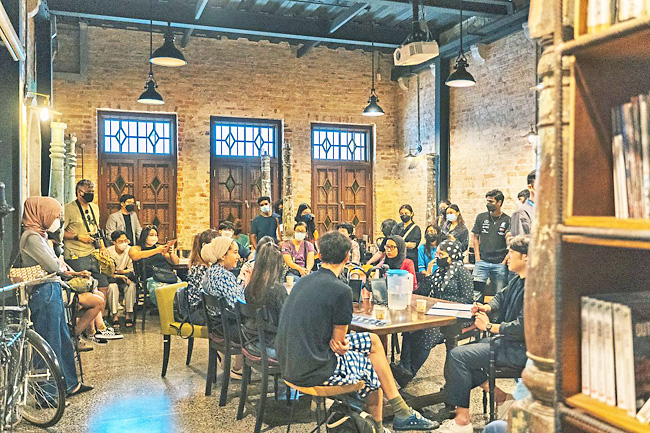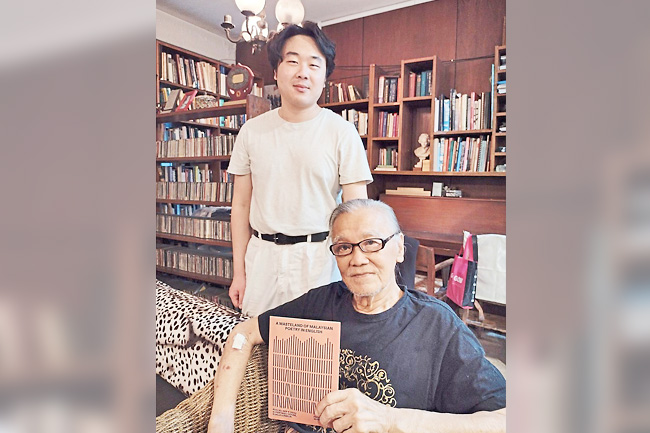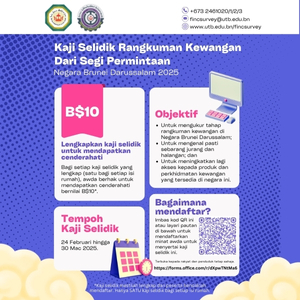ANN/THE STAR – The phrase “These fragments I have shored against my ruins” stands out as one of the well-known lines from TS Eliot’s poem The Waste Land.
This line delves into the concept of gathering fragments to protect them from the effects of time’s decay – a theme central to the purpose of the audio exhibition titled ‘A Wasteland Of Malaysian Poetry In English’.
Curated by Brandon K Liew – a doctoral researcher at the University of Melbourne who lectures about Malaysian history, literature and emerging cultural productions across the Asia-Pacific – the exhibition’s title was inspired by the poem, said to be one of the most important poems of the 20th Century and an early Modernist influence on Malaysian poets.
The exhibition’s third iteration marked its return, having been held in Melbourne in October last year.
FOR THE RECORD
“The audio exhibition is really an archival project at heart,” said Liew.
Since the first iteration at Pentago House in Kampung Attap in Kuala Lumpur in August last year, he hasn’t stopped recording poets or collecting older, out-of-print material from the 1950s up to 2000s.
“I feel the burden only getting heavier; since (poet) Wong Phui Nam’s passing a mere few weeks after the exhibition last year, the importance of our recordings together really dawned on me,” he added.


Since then, Liew has archived writers like Lee Kok Liang and Ee Tiang Hong, and even republished their early work, while also finding mentors, supporters and friends along the way, such as Anna Salleh, who has shared her private cassette recordings of her father Salleh Ben Joned with Liew.
“Chasing literary ghosts leads me to all sorts of strange places. The legacy of Lee Kok Liang, Ee Tiang Hong and Salleh Ben Joned during their time in Australia led me to hold the exhibition in Melbourne, where I found a few of their original texts,” said Liew.
“Their encounter with the Australian way of life shaped the way they reflected on being inherently Malaysian – that was rather profound to me. I basically invited all the Malaysian writers in Melbourne to respond to it and to read their own stuff in the same space,” he added.
While the collection of recordings has grown, Liew’s vision for the archive/exhibition remained the same.
“I just want Malaysians, particularly writers of my generation, to have access to this wealth of material, these words, this tradition from our writers in English.”
“We’ve seen a burst of interest and activity in the literary scene in the past decade, but it seems that not many are familiar with our writers from before – many who come through are kind of astonished by it. I’m always sad when they ask me for books, because I usually only have one out-of-print copy and nothing more.”
BUILDING A COMMUNITY
While the exhibition has garnered some interest overseas, Liew shared that bringing it back to Malaysia has a sense of completeness to it, like coming home after a voyage.
“I started this project to exhibit hard-to-find Malaysian works in English to a wider public.
“Not just texts that are out-of-print, but a lot of contemporary work that might not be in circulation yet,” said Liew.
For example, he spent some time with writer Shirley Geok-lin Lim, who is based in the United States.
“We recorded a lot of poems from her upcoming collection.
“I feel very lucky to be able to share this intimate reading with the community, our ‘kaki-lang’ – Malaysian writers in English.”
This literary-meets-archival project has grown in scale since its early days.
“The recordings are only one part of it. The archival project allows me to reach out to different writers from all generations and all walks of life, to engage in conversation with them about their context, writing practices, influences and philosophy.
“Quite often, we’ll spend the whole day chatting and maybe an hour or so recording.
“This sense of community is central to the process, I’m charting not just the relation of texts to each other, but of the writers themselves,” said Liew.
Besides a running gamut of activities ranging from a live reading and open mic to open recording sessions and daily exhibition talks, Penang-based writers Wan Phing Lim and Yee Heng Yeh facilitated free hands-on workshops about the importance of “place” in making fiction authentic and how to write dialogue for plays.
“Many of my literary friends and authors are stopped by for the open mic sessions, so it was a good chance to encounter a myriad of different writers and build your own writing community,” said Liew. – Hanis Maketab







